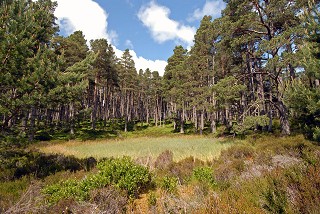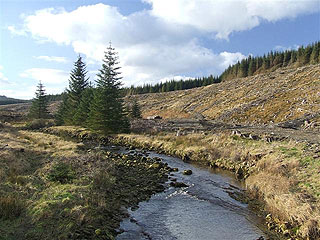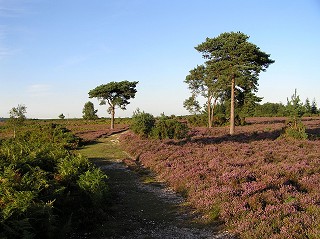Call for unified forestry and wildlife service
In the consultation over the future of England's forests, the RSPB believes that its idea for the creation of a Forest and Wildlife Service — merging the conservation and heritage elements of the Forestry Commission and Natural England — has much to commend it.

Abernethy Forest (photo: Paul Bingham).
Dr Mark Avery, RSPB's Conservation Director, said: "Surely we should use the consultation to think deeply about the future role of the state in forestry as a business, and land management as a public service. Why not separate the truly commercial forests from the ones that are primarily of heritage value and change the remit of the Forestry Commission to deliver those social and environmental aspects for which people are now crying out? The Forestry Commission delivers a mix of economic, environmental and social benefits. But in the real world, the Treasury has a stranglehold, and the Commission has to deliver a financial return which means acting like a business a lot of the time, rather than a public service."

Kielder Forest (photo: Mick Greenwood).
The RSPB believes that a Forest and Wildlife Service that delivers natural beauty for the public is an increasingly good idea. Dr Avery added: "It is likely that many within the Forestry Commission could accept this proposal too. Its staff are efficient and capable land managers with quite a gift for dealing with the public. Natural England staff have more of the scientific expertise, see a bigger environmental picture and have greater biodiversity expertise. Is this a marriage made in heaven?"
"Let's emancipate our state lumberjacks — they have nothing to lose but their chainsaws."
POSTSCRIPT — 17th February 2011
The Government must be more ambitious when it comes to protecting and restoring wildlife rich woodlands. That's the message from the RSPB following the announcement that a consultation into selling off Forestry Commission land is to be scrapped.
The massive public opposition to the proposed sale has shown how passionate people are about our iconic natural landscapes. The Government must take this on board and ensure that our heritage forests are better managed in future and areas of heathland and native woodlands that have been defaced by commercial conifer plantations are properly restored to their former glory.

Red Shoot Plain, New Forest (photo: Charles Cuthbert).
"The Forestry Commission estate includes large areas of commercial conifer plantations, but it also features some of our most treasured native woodlands as well as areas with the potential to be restored to wildlife-rich habitats such as lowland heathland. The Commission's role as a commercial forester and as a guardian of wildlife is an odd mixture and it cannot last. We welcome the setting up of an expert panel, and the RSPB would be keen to play a part in its work. The panel will need to examine the role of the Forestry Commission to decide whether its current remit is well suited to the delivery of public access and a richer wildlife in our publicly owned forests, heaths and grasslands."
"One of the options that the panel should consider, which has growing momentum with conservationists and foresters, is the creation of a Forest and Wildlife Service whose remit would include providing a much better future for our forests and the wildlife that depends on them."

